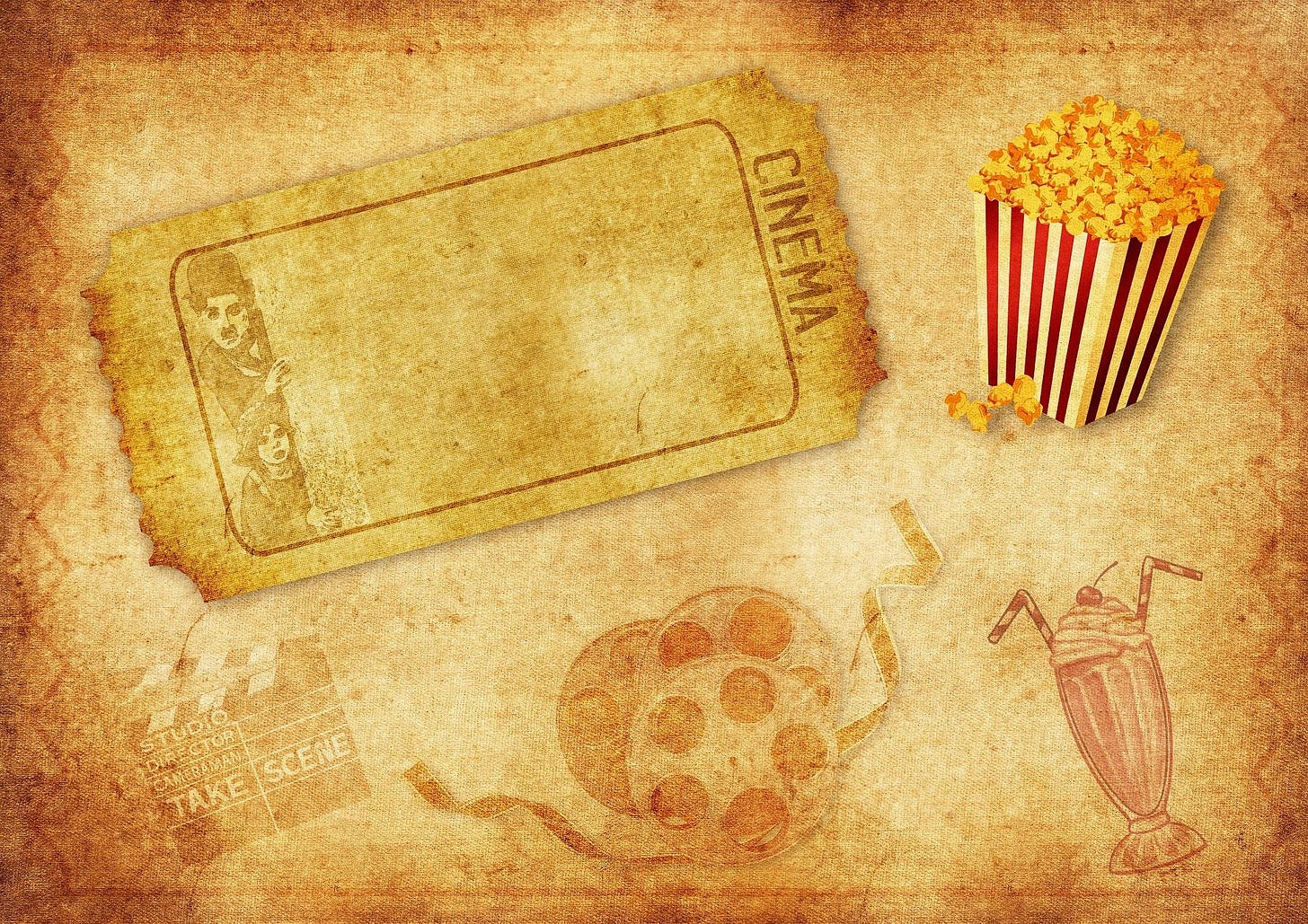Match Made in Heaven...
Ever wondered why popcorn is so popular at movie theatres? Worldwide? Today, we explore how popcorn and movies become the Happily-Ever-After couple ❤️
You can listen to this piece here.
What comes to mind when you hear the word “Popcorn”?
The buttery aroma, the popping sound and the movie theatre that you haven’t been to since ages (thanks, Covid).
But, popcorn isn’t just our companion for the movies; the story of the universal favourite snack is also truly movie-worthy. Its origin dates back to the 1800s, and its rise to stardom can be attributed to The Great Depression. It survived the World Wars like no other snack did.
It’s not just the story of a snack, it’s a peek into the human psyche itself.
Now that we have your interest, grab a tub of popcorn and let the story begin!
Popcorn and movies were never ‘meant to be’. Yet, they are now the ‘happily ever after’. The story begins in the year 1848, when the act of eating popcorn spread like wildfire and the word ‘popcorn’ was included in the Dictionary of Americanism. It was the most tasty, light and cheap snack.
Portable popcorn machines could be found at all major public attractions. Fairs, fests, carnivals, you name it! However, there was one place of entertainment from where they remained notoriously absent - the movie theatres.
Surprising, no?
Well, well. It was a time when movie theatres wanted to be like the most hip and posh thing in the town. Afterall, cinema was a new concept and had to beat the other forms of entertainment to be successful. And so, to replicate the pomp and show of live theatre, popcorn had to go. Imagine the chomping and munching noise that popcorn would create while watching a silent movie. Eww.
For quite some time, only silent films were made, and they had intertitles which required reading in order to understand a movie. This restricted the number of people who went to the movies. But this changed in 1927, when sound was added to movies.
Movies now became the most coveted form of entertainment.
The popcorn selling vendors quickly understood that the product they had in hand was brilliant - low cost raw material and high margins.
They now flocked outside the movie theatres, trying to lure large crowds. More and more cine goers fluttered around the vendors.
But, the theatre owners did not quite like what was happening. One could imagine their plight. Popcorn was selling faster than movie tickets and they were unable to get a bite of it!
Can’t really blame them. Even if they would have wanted to sell popcorn, the theatres were not designed to accommodate a popcorn machine of those times.
Not much later, the Great Depression set in. It meant job losses and dwindling profits for most of the industries. But not for the movies.
Movies were considered an escape route from reality and were pretty affordable for the public at large. Seeing popcorn vendors go home with jingling pockets, the theatre owners could no longer resist the attraction and finally started selling their own popcorn. As the great depression finally started catching up with the movie industry, popcorn kept the theatres afloat. Those who refused to adapt, could not survive.
You must be wondering, why only popcorn though, why not other snacks?
The answer lies in popcorn’s recipe. The salty snack is truly addictive. It releases a hormone called dopamine, which is also released when we consume alcohol or gamble.
Now, as the world came to a standstill, with some of the biggest countries warring against one another (World War II), the US economy saw a shortage of sugar.
Sugar rationing began. One could no longer eat candies and lollipops. This was further instrumental in bending the public sentiment towards Popcorn.
Other snackables required a kitchen and an elaborate set-up which was not feasible in those times.
Plus, unlike candies that last only a few minutes, popcorn could be savoured for an entire movie. Paisa Vasool.
Isn’t it?
While the Popcorn economy flourished, it made sure it was not alone. Popcorn made people thirsty. And so the demand for soda and cola increased.
But the 1900s was a strange era. The only thing that remained constant was change.
When the War ended and normalcy was restored, TVs and microwaves came into the picture.
Result?
Entertainment was now available from the comforts of one’s home.
That was it! The whole business model of popcorn-sellers was about to be uprooted. Their survival was in jeopardy. That’s when the microwave friendly popcorn arrived!
And, in came a brand that jumped on this trend and became synonymous to popcorn.
Act II.
Want to find out how? Watch this space.
Written by Yavantika and Divya
Thousands of our readers get daily updates on WhatsApp! 👇 Join now!



